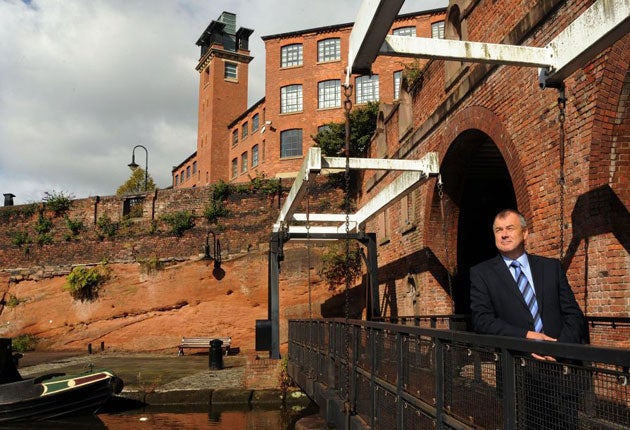Brendan Barber: Faced by this dangerous plot to redraw the State, look at how the decent majority killed the poll tax

Your support helps us to tell the story
From reproductive rights to climate change to Big Tech, The Independent is on the ground when the story is developing. Whether it's investigating the financials of Elon Musk's pro-Trump PAC or producing our latest documentary, 'The A Word', which shines a light on the American women fighting for reproductive rights, we know how important it is to parse out the facts from the messaging.
At such a critical moment in US history, we need reporters on the ground. Your donation allows us to keep sending journalists to speak to both sides of the story.
The Independent is trusted by Americans across the entire political spectrum. And unlike many other quality news outlets, we choose not to lock Americans out of our reporting and analysis with paywalls. We believe quality journalism should be available to everyone, paid for by those who can afford it.
Your support makes all the difference.The Government's plans to cut spending and redraw the State are more radical and dangerous than anything since the 1930s. Yet the debate about the deficit at present is still abstract. Of course most people would rather cut debt and run services efficiently, but when the cuts start to bite the mood will change. As people begin to see the unfairness of the cuts, the more support our alternative will win. Already we are getting the first hints that ministers are beginning to worry how voters will respond.
That is why I look back to the poll-tax campaign for inspiration. That was the last great U-turn carried out by a Conservative prime minister. It went because the decent majority stood up and said that it was fundamentally unfair. MPs returned to Westminster to tell whips and ministers that their normally placid and safe seats were in uproar. There may have been disorder in central London, but that was an unwelcome distraction. The poll tax was abolished because Middle Britain said no.
Ministers insist their economic policies are progressive. They say they will shield the vulnerable and that they will protect front-line services. Yet each has turned out to be impossible to deliver in even the first round of budget reductions. Ministers also say they have no choice, but with the OECD worrying that cuts will choke off recovery and the IMF saying the UK has room for fiscal manoeuvre, that looks weaker every day. We start with a more sensible timescale for tackling the deficit.
By giving growth every help, we get the tax take flowing again. And rather than spending cuts that bear down on the poor, and middle-income Britain, we seek a fair tax system. Ministers should stamp down on tax avoidance, not least by reversing the cuts in revenue staff that lie behind many of the current PAYE problems. And we should ask those who gained so much from the bubble that brought us the crash to make a proper contribution, not least through a Robin Hood transactions tax.
Our opponents say unions have had their day. But we are central to what will be the country's dominant debate. For the sake not just of our members, but for the very social fabric that holds our society together, we need to win.
Yesterday, the TUC published research showing that the cuts will fail the same fairness test as the poll tax. The poorest 10 per cent will lose 13 times more than the top 10 per cent from the cuts the coalition plan. And of course it is not just public sector workers who will lose their jobs. Just 25p of every tax pound is spent on wages; 38p buys good and services from the private sector. The spectre of the double-dip is real.
Today at our Congress we launch our campaign to make the Government think again. We invite those who depend on public services or public spending to join us. Our aim is to ensure that every coalition MP is told by constituents to change course.
But we need a national focus too. We will lobby Parliament on 19 October – the eve of the Comprehensive Spending Review – and demonstrate in London next March.
The writer is General Secretary of the TUC
Join our commenting forum
Join thought-provoking conversations, follow other Independent readers and see their replies
Comments